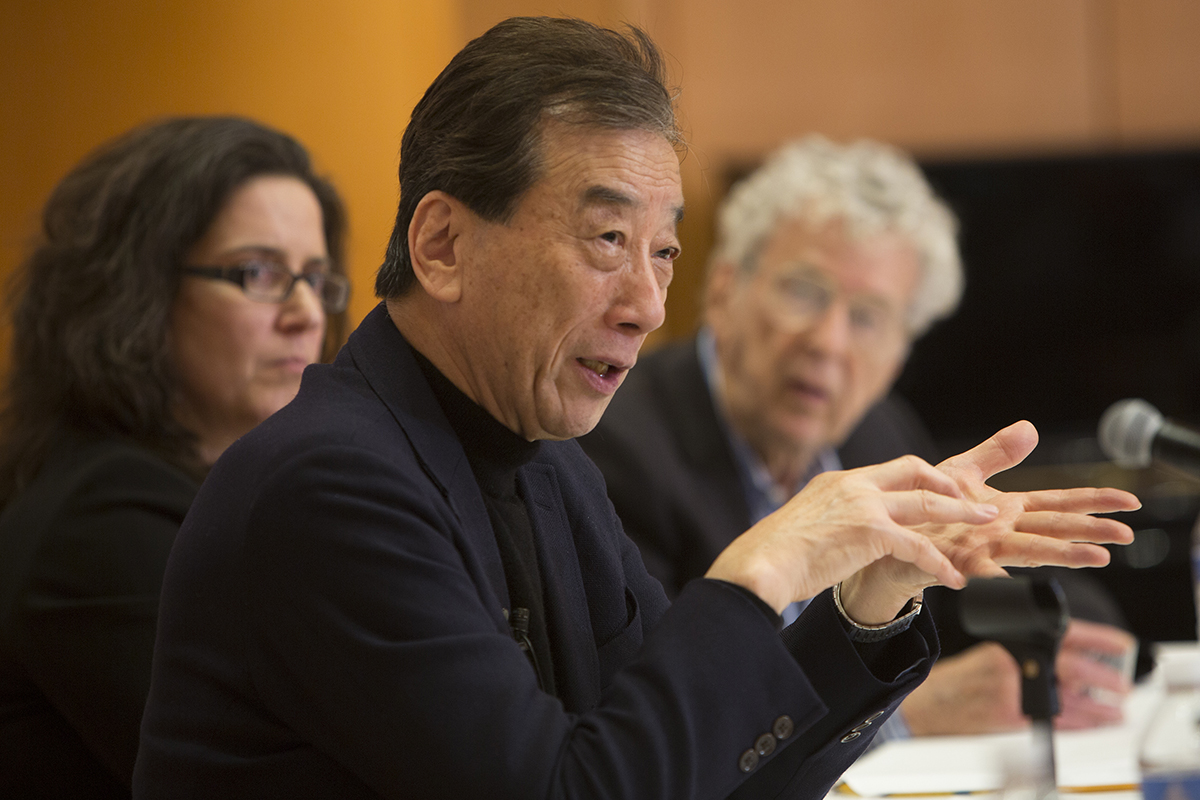Fukushima accident panel discusses safety, energy
By Blaine Friedlander

On the fifth anniversary of the Fukushima nuclear disaster, Dr. Kiyoshi Kurokawa, the accident’s chief investigator, cited some of the catastrophe’s causes: the Japanese culture’s “groupthink” and the government’s lack of openness and transparency.
He spoke at the panel, “Five Years After Fukushima: What Have We Learned From the Nuclear Accidents?” March 11 at Klarman Hall auditorium.
Kurokawa explained that a “unique” Japanese mindset and its cultural idiosyncrasies contributed to the disaster. He said while Japanese are stable in business and excellent in engineering, with a well-informed public, there is an unclear decision-making process within the culture and the Japanese tend to be isolated from the world. Additionally, he said, the government is prone to prefer strong loyalty, retain weak leadership and lack accountability.
“The mindset of [the] Japanese tends to be groupthink … and not taking different opinions,” said Kurokawa, who chaired the National Diet of Japan Fukushima Nuclear Accident Independent Investigation Commission. “So a lack of transparency and openness is still the prevailing norm,” he said.
In broadcasts streamed live during 900 hours of hearings, the commission conducted 1,167 interviews, surveyed 10,633 evacuees and 2,415 nuclear on-site workers, held town meetings, and made nine nuclear power plant visits.
In addition to Kurokawa, panelists were Charles Perrow, Yale University professor emeritus of sociology, and Sonja Schmid, Virginia Tech associate professor of science and technology in society. Hirokazu Miyazaki, professor of anthropology, the John S. Knight Professor of International Studies and the director of the Einaudi Center, and Rebecca Slayton, assistant professor, science and technology studies, moderated the panel.
Perrow referenced the Fukushima, Chernobyl and Three Mile Island nuclear accidents by asking a key question: “Why are we still building nuclear power plants after three major accidents?” he said. “We now have renewable energy in the form of wind and solar and geothermal that can replace this very dangerous, very expensive form of … power,” he said.
Schmid said understanding the Chernobyl accident is complex due to the human factors involved in the disaster. She reminded the audience that the Soviet’s design of the nuclear facility “worked in its own way. So dismissing it [as the accident’s cause] in retrospect is an easy way out.”
In a question-and-answer session that followed the panel, carbon emission and other pollutants – in relation to climate change – were addressed. Perrow said nuclear energy is not a zero-contamination prospect.
“There is a lot of pollution,” he said, when you add in the problems of uranium mining and radiation sickness for people living in close proximity. “These plants have to burp every once in a while.”
Media Contact
Get Cornell news delivered right to your inbox.
Subscribe